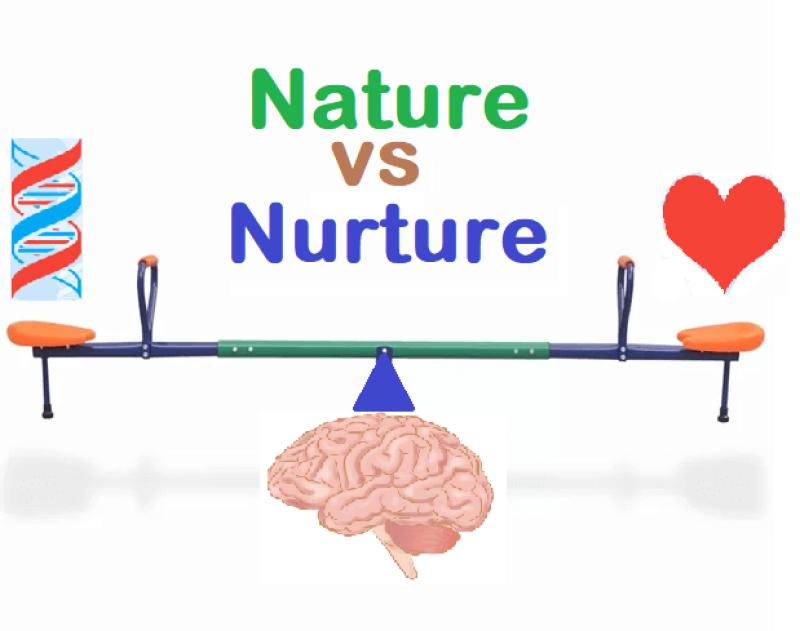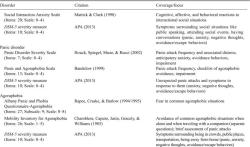What are your beliefs on nature versus nurture?
The nature versus nurture debate is fascinating! From what I've learned, it seems clear that both nature and nurture play significant roles in shaping who we are.
Nature refers to our genetic and biological predispositions—the traits and characteristics we inherit from our parents. These genetic factors can influence various aspects of our lives, such as physical attributes, certain personality traits, and predispositions to certain health conditions.
On the other hand, nurture encompasses the environmental influences that impact our development. This includes everything from our upbringing, family dynamics, education, cultural background, social interactions, and life experiences. These external factors can significantly shape our beliefs, behaviors, values, and skills.
In reality, it's rarely a simple case of nature versus nurture. Rather, it's the interplay and interaction between these two forces that define us. Our genes provide a blueprint, but our environment shapes how that blueprint unfolds. For instance, someone might have a genetic predisposition for a certain talent, but without the right environment or opportunities, that talent might never fully develop.
Moreover, the relationship between nature and nurture isn't static; it's dynamic and complex. Research continually shows how both nature and nurture continually influence each other throughout our lives. Our experiences can alter the expression of our genes, a concept known as epigenetics, while our genetic makeup can also influence how we interact with and respond to our environment.
Ultimately, it's the combination of our genetic makeup and the environment we're exposed to that shapes our development, personality, behavior, and abilities. Embracing the complexity and richness of this interaction can help us understand ourselves and others more deeply, acknowledging the impact of both nature and nurture in making us who we are.
What is the role of nature and nurture in human development?
Nature and nurture are the two fundamental factors that influence human development. Nature refers to our inherited genetic makeup, while nurture encompasses the environmental factors that affect us from conception onward. Both nature and nurture play important roles in shaping who we are as individuals.
Nature
Our genes provide the blueprint for our physical characteristics, such as our height, eye color, and hair texture. They also influence our predispositions to certain traits, such as intelligence, temperament, and susceptibility to certain diseases. However, genes are not deterministic; they provide the potential for development, but the environment plays a crucial role in shaping how those genes are expressed.
Nurture
The environment encompasses all the external factors that influence our development, including our family, peers, culture, education, and socioeconomic status. These factors provide the context in which we grow and learn, and they have a profound impact on our physical, cognitive, social, and emotional development.
Nature and Nurture Interaction
Nature and nurture do not work in isolation; they interact in complex ways to shape individual traits and behaviors. For instance, a child with a genetic predisposition for intelligence may be more likely to flourish in an environment that provides stimulating learning opportunities. Conversely, a child with a genetic predisposition for a certain personality trait may be less likely to exhibit that trait if raised in an environment that does not support it.
How do nature and nurture interact to shape individual traits and behaviors?
Nature and nurture interact in intricate ways to shape individual traits and behaviors. Here are some examples of how this interaction occurs:
Physical Traits: Our genes determine our basic physical features, but environmental factors can influence how those traits develop. For instance, a child with a genetic predisposition for tall stature may grow taller if provided with a nutritious diet and adequate sleep.
Cognitive Abilities: Our genes set the limits of our cognitive potential, but environmental factors play a critical role in developing those abilities. Stimulation, education, and practice can significantly enhance cognitive skills, while a lack of these factors can hinder development.
Temperament and Personality: Genetics influence our temperament, our inborn emotional tendencies, but nurture shapes our personality, which is a complex blend of temperament, experiences, and self-perception. Environmental factors, such as parenting styles, cultural norms, and social interactions, can mold personality traits.
Mental Health: Genetic predispositions can increase the risk of developing certain mental health conditions, but environmental factors, such as stress, trauma, and substance abuse, can trigger or exacerbate mental health issues.
What are the contemporary perspectives on the nature versus nurture debate?
The nature versus nurture debate has been a central theme in psychology and developmental science for centuries. In the past, there was a tendency to view nature and nurture as opposing forces, with proponents of each side arguing for the preeminence of their respective factor.
Today, the debate has evolved, and there is a broader consensus that nature and nurture interact in complex and dynamic ways. Researchers recognize that both genetic predispositions and environmental factors contribute to individual development, and they are increasingly focused on understanding how these factors interact.
Contemporary perspectives on nature and nurture emphasize the following:
Interplay of Nature and Nurture: Genes and environment do not operate in isolation; they influence each other in intricate ways.
Individual Variation: The relative influence of nature and nurture varies across individuals and traits.
Developmental Plasticity: The brain is remarkably adaptable, allowing for significant changes in response to environmental stimuli.
Epigenetics: Gene expression can be modified by environmental factors, leading to variations in traits without changes in DNA sequences.
Holistic Approach: Understanding human development requires considering both genetic and environmental factors within a broader context.
The nature versus nurture debate has evolved from a simplistic dichotomy to a more nuanced understanding of the complex interplay between our genetic inheritance and the environments we experience. This evolving perspective has significant implications for understanding human development, individual differences, and the potential for intervention and change.













